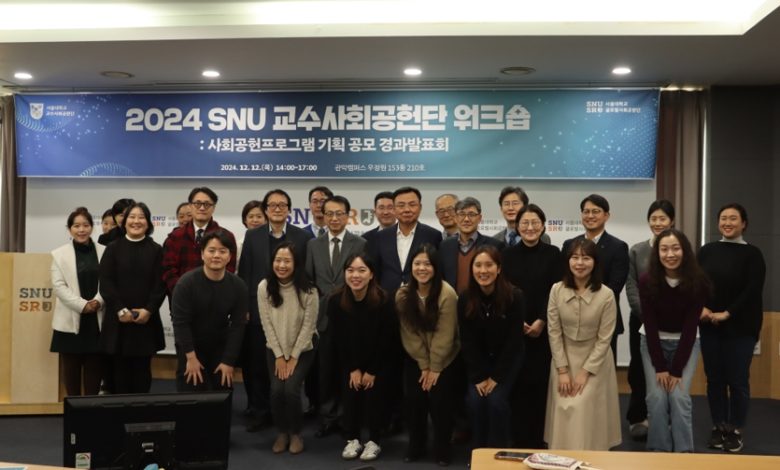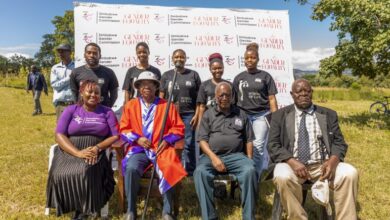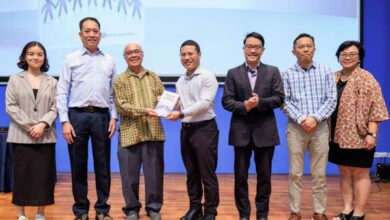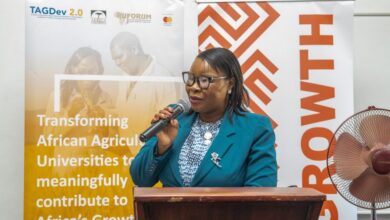Innovative Social Contribution Initiatives by SNU Professors: Bridging Academia and Community

On December 12, the SNU Professor Society for Social Responsibility (PSSR) held a workshop to showcase the results of its Social Contribution Program Planning Contest. This event provided professors from Seoul National University (SNU) with an opportunity to present projects aimed at addressing various societal challenges, highlighting the role of universities as facilitators of positive change.
Overview of PSSR Initiatives
The PSSR was established to blend academic insights with social responsibility and engages in a range of initiatives both within South Korea and internationally. Domestic projects include medical outreach efforts, community care for underserved groups, rehabilitation services for children with heart conditions, and health education for multicultural families. On an international scale, the organization has implemented capacity-building programs for neonatal hearing loss in Nepal, maternal health training in Vietnam, and healthcare education initiatives in Mongolia, Uzbekistan, and Kyrgyzstan. These initiatives reflect PSSR’s dedication to meeting diverse social needs while considering local contexts.
Social Contribution Program Planning Contest
The Social Contribution Program Planning Contest ran for three weeks, starting on May 24, and invited participants to submit their project proposals. This collaborative effort aimed to unite faculty members from multiple disciplines to develop sustainable solutions to pressing global and local issues. The final workshop provided an informal setting for the presentation and discussion of these projects, facilitating networking opportunities and collaborations in research.
Featured Projects and Presentations
During the workshop, five projects were featured, emphasizing themes such as creativity, interdisciplinary collaboration, and community engagement. A notable presentation was made by Professors Park Sang Won and Oh Hong Sang from the College of Medicine, who discussed strategies to prevent healthcare-associated infections in Nepal. Their field research in Nepali hospitals uncovered weaknesses in infection control measures and proposed enhancements like targeted staff training and improved monitoring processes.
Another significant presentation came from Professors Grace H. Chung and Jungeun Lee from the College of Human Ecology, who introduced a leadership empowerment program for Filipino immigrant women in Korea. This program seeks to address challenges related to cultural adjustment and financial constraints through interactive workshops designed to build confidence and enhance skills for contributing to their families and communities.
Encouraging Dynamic Discussions
Interactive question-and-answer sessions following each presentation encouraged dynamic discussions among participants, allowing for clarification, idea sharing, and constructive feedback. This exchange was essential in fostering an environment that promotes interdisciplinary development.
Future Objectives of PSSR
The workshop not only highlighted successful initiatives but also furthered the PSSR’s mission to encourage collaboration and extend the outreach of their programs. Future objectives include strengthening international partnerships, supporting localized projects, and advancing Official Development Assistance (ODA), all with the goal of establishing sustainable community empowerment systems.
Conclusion
Through these innovative projects and collaborative efforts, the PSSR demonstrates how academic institutions can address real-world challenges effectively, transforming research into practical applications. By merging local expertise with global initiatives, the society underscores the crucial role of academia in fostering a more inclusive and sustainable future. Such initiatives not only confront complex societal problems but also aim for a lasting positive impact.
This article is based on information from Seoul National University.




